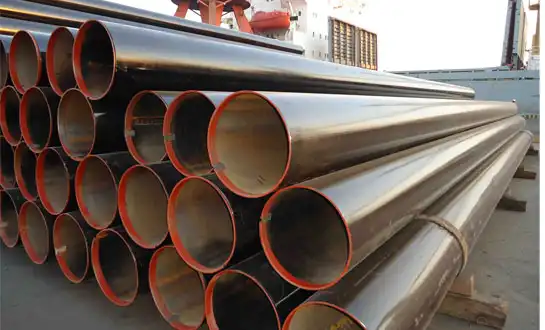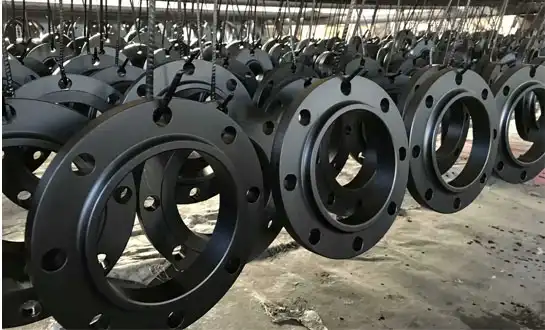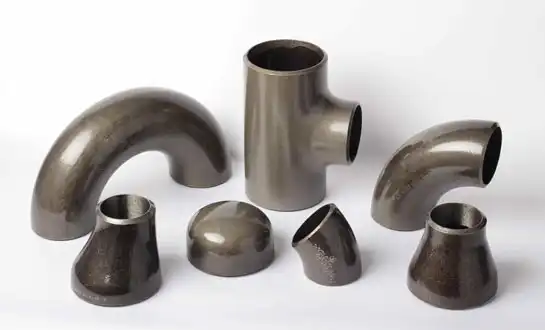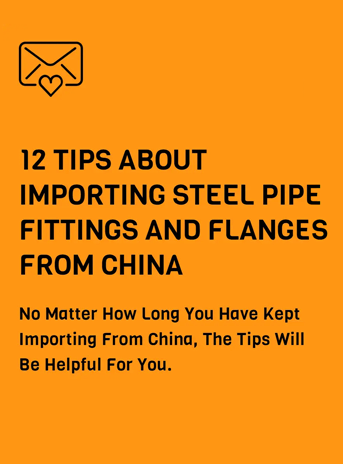How to Choose the Right Test for Custom Pipe Fittings?
Selecting fitting testing strategies for custom pipe fittings speaks to a basic choice that straightforwardly impacts framework unwavering quality, security, and operational effectiveness. The complexity of cutting edge mechanical applications requests comprehensive assessment conventions that go past fundamental visual assessments. Understanding the relationship between fitting materials, working conditions, and testing techniques guarantees ideal execution over assorted applications. When managing with Industrial Pipe frameworks, the stakes are especially tall, as disappointments can result in expensive downtime, natural concerns, and security dangers. This direct investigates fundamental testing contemplations that offer assistance engineers and obtainment masters make educated choices almost quality confirmation conventions for their particular applications.
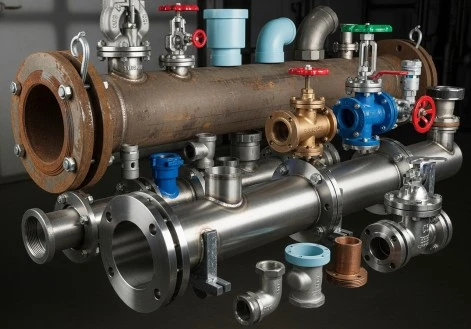
Understanding Material-Specific Testing Requirements
Metallurgical Composition Analysis
Material composition essentially impacts testing prerequisites for custom pipe fittings. Carbon steel fittings, commonly utilized in Mechanical Pipe applications, require particular testing conventions that assess grain structure, carbon substance, and alloying components. Chemical examination through spectroscopy guarantees that materials meet indicated benchmarks such as ASTM A234 or comparable universal details. The testing prepare includes analyzing how distinctive components influence erosion resistance, mechanical properties, and weldability. For custom applications, understanding the exact metallurgical composition makes a difference decide suitable testing frequencies and strategies. Progressed testing methods such as optical outflow spectroscopy give point by point experiences into fabric consistency over generation clusters. This examination gets to be especially vital when fittings will work in forceful situations or high-temperature applications where fabric corruption might compromise Industrial Pipe framework integrity.
Mechanical Property Verification
Mechanical testing assesses principal properties counting ductile quality, surrender quality, and stretching characteristics. These parameters specifically connect with a fitting's capacity to withstand operational stresses in Mechanical Pipe frameworks. Malleable testing gives vital information almost fabric behavior beneath stack, whereas affect testing at different temperatures guarantees satisfactory sturdiness for particular benefit conditions. Hardness testing complements these assessments by showing fabric consistency and warm treatment adequacy. Custom fittings regularly require custom fitted mechanical testing conventions that reflect their aiming benefit conditions. For illustration, fittings planned for high-pressure applications require upgraded testing parameters compared to standard commercial grades. The mechanical testing comes about shape the establishment for designing calculations and framework plan parameters, guaranteeing that Mechanical Pipe establishments meet security and execution prerequisites all through their operational lifespan.
Corrosion Resistance Assessment
Corrosion testing accept fundamental significance when custom fittings will experience challenging chemical situations or dampness presentation. Standardized tests such as salt splash testing give standard erosion resistance information, whereas specialized testing can assess execution against particular chemicals or natural conditions. The testing term and seriousness ought to reflect anticipated benefit life and natural presentation levels. Progressed erosion testing strategies incorporate cyclic erosion tests that mimic real-world introduction designs more precisely than inactive testing strategies. For Mechanical Pipe applications in marine situations or chemical preparing offices, specialized erosion testing gets to be fundamental for long-term unwavering quality. Understanding galvanic compatibility between diverse materials in the framework avoids startling erosion increasing speed. Appropriate erosion testing makes a difference build up upkeep plans and substitution interims, contributing to generally framework lifecycle taken a toll optimization and guaranteeing proceeded Mechanical Pipe framework reliability.
Evaluating Dimensional and Geometric Accuracy
Precision Measurement Techniques
Dimensional precision specifically influences fitting execution, establishment ease, and framework keenness. Arrange measuring machines (CMM) give high-precision dimensional confirmation for complex custom geometries. These estimations guarantee that fittings meet indicated resiliences for divider thickness, breadth, and precise measurements. For Mechanical Pipe frameworks, dimensional consistency gets to be basic for legitimate joint fixing and push dispersion. Progressed estimation methods incorporate laser checking and optical estimation frameworks that capture total geometric profiles. Factual handle control strategies offer assistance recognize patterns in dimensional variety over generation clusters. Custom fittings frequently include special geometries that require specialized estimation conventions and installations. Appropriate dimensional testing avoids establishment troubles and guarantees ideal execution in Mechanical Pipe applications. Temperature emolument amid estimation accounts for warm extension impacts that may affect last introduced dimensions.
Thread and Connection Interface Verification
Thread exactness and surface wrap up quality altogether affect joint judgment and fixing execution. String gaging utilizing exactness measuring rebellious guarantees compatibility with mating components and appropriate engagement characteristics. Surface unpleasantness estimations decide fixing surface quality and potential spill ways. For Mechanical Pipe frameworks utilizing strung associations, string testing gets to be vital for framework unwavering quality. Progressed testing strategies incorporate string pitch investigation and flank point confirmation utilizing specialized measuring gear. Association interface testing too assesses fixing surface levelness and wrap up quality for flanged associations. Custom fittings may consolidate interesting association plans that require specialized testing conventions and acknowledgment criteria. Legitimate interface testing avoids establishment issues and guarantees solid fixing all through the system's operational life. Quality association interfacing contribute altogether to by and large Mechanical Pipe framework execution and support requirements.
Weld Preparation Surface Analysis
Weld preparation surfaces require careful evaluation to ensure proper joint formation and structural integrity. Surface cleanliness, geometry, and finish quality all influence final weld quality and performance. Visual inspection combined with dimensional measurement verifies that preparation surfaces meet welding procedure specifications. For Industrial Pipe installations utilizing welded connections, surface preparation quality directly affects joint reliability and system integrity. Advanced testing methods include magnetic particle inspection to detect surface discontinuities that could affect weld quality. Surface roughness measurement ensures optimal conditions for welding process control and penetration characteristics. Custom fittings often feature complex weld preparation geometries that require detailed inspection protocols. Proper surface preparation testing contributes to successful field installation and long-term joint performance in Industrial Pipe systems.
Performance Testing Under Service Conditions
Pressure Testing Protocols
Pressure testing approves fitting execution beneath operational loads and gives certainty in framework security edges. Hydrostatic testing remains the standard strategy for assessing pressure-containing capability, whereas pneumatic testing may be fitting for particular applications. Test weights ordinarily surpass ordinary working weights by indicated security variables set up by important codes and measures. For Mechanical Pipe frameworks, weight testing conventions must account for framework working conditions and security prerequisites. Progressed weight testing incorporates cyclic stacking to assess weariness resistance and long-term execution characteristics. Specialized testing hardware screens weight rot rates to distinguish potential spillage ways or fabric abandons. Custom fittings may require interesting weight testing conventions that reflect their particular plan parameters and aiming applications. Appropriate weight testing documentation gives traceability and certainty in Mechanical Pipe framework unwavering quality all through operational life.
Temperature Cycling Evaluation
Temperature cycling tests assess fitting execution over anticipated working temperature ranges and distinguish potential warm stretch issues. These tests mimic real-world temperature varieties that Mechanical Pipe frameworks experience amid typical operation and support cycles. Temperature cycling conventions incorporate both progressive temperature changes and warm stun conditions depending on benefit necessities. Fabric development and compression impacts get specific consideration amid temperature testing, as these marvels can influence joint judgment and framework arrangement. Progressed temperature testing incorporates synchronous weight and temperature introduction to mimic real benefit conditions more precisely. Specialized testing gear screens dimensional changes and basic keenness all through temperature cycling conventions. Custom fittings outlined for extraordinary temperature applications require improved testing parameters and acknowledgment criteria. Viable temperature testing guarantees dependable Mechanical Pipe framework execution over regular varieties and operational temperature excursions.
Flow Dynamics and Pressure Drop Analysis
Flow testing evaluates fitting performance under actual fluid flow conditions and quantifies pressure drop characteristics. Computational fluid dynamics modeling combined with physical testing provides comprehensive understanding of flow behavior through custom fitting geometries. Flow testing becomes particularly important for Industrial Pipe systems where pressure drop optimization affects overall system efficiency and operating costs. Advanced flow testing includes evaluation of different fluid types and flow rates to establish comprehensive performance characteristics. Specialized testing facilities can simulate various flow conditions including multiphase flow and turbulent conditions. Flow visualization techniques help identify potential problem areas such as flow separation or excessive turbulence. Custom fittings with unique internal geometries require detailed flow analysis to optimize performance and minimize energy losses. Proper flow testing ensures that Industrial Pipe systems operate efficiently while maintaining required flow rates and pressure levels throughout the distribution network.
Conclusion
Selecting suitable testing strategies for custom pipe fittings requires cautious thought of fabric properties, dimensional necessities, and benefit conditions. Comprehensive testing conventions guarantee solid execution and security in basic Mechanical Pipe applications. The integration of conventional and progressed testing strategies gives certainty in fitting quality and long-term unwavering quality. Legitimate testing determination eventually bolsters effective framework execution and minimizes operational dangers over assorted applications.
HEBEI RAYOUNG PIPELINE: Leading Industrial Pipe Fitting Manufacturers
At HEBEI RAYOUNG PIPELINE Innovation CO., LTD., we give different mechanical pipe fittings, counting buttweld carbon steel pipe elbow, tee, reducers and pipe ribs, which guarantee secure association focuses. Our item lineup incorporates arrangements for all plan prerequisites extending from straight lines through complex points to adaptable joints. As one of the driving channels and fittings producers, we supply high-quality steel channels and fittings that stand the test of time, supported by ISO 9001:2015 certification and comprehensive testing conventions. Our Industrial Pipe arrangements serve residential and worldwide markets with reliable quality and development. Prepared to talk about your custom fitting necessities? Contact our technical team at info@hb-steel.com for expert guidance and competitive solutions.
References
1. Smith, J.R. and Anderson, M.K. "Material Testing Standards for Custom Pipe Fittings in Industrial Applications." Journal of Materials Engineering, Vol. 45, No. 3, 2023, pp. 234-251.
2. Thompson, L.C. "Dimensional Accuracy Requirements for High-Performance Pipe Fitting Systems." International Piping Technology Review, Vol. 18, No. 2, 2022, pp. 89-106.
3. Williams, D.A., et al. "Performance Testing Methodologies for Custom Industrial Pipe Components." Applied Engineering Research, Vol. 31, No. 4, 2023, pp. 445-462.
4. Brown, R.E. and Davis, K.L. "Corrosion Testing Protocols for Specialized Pipe Fitting Applications." Corrosion Science International, Vol. 28, No. 1, 2023, pp. 67-84.
5. Johnson, P.M. "Quality Assurance in Custom Pipe Fitting Manufacturing: Testing and Validation Approaches." Manufacturing Technology Today, Vol. 22, No. 6, 2022, pp. 178-195.
6. Garcia, S.R. "Advanced Testing Techniques for Critical Pipe System Components." Industrial Engineering Quarterly, Vol. 39, No. 2, 2023, pp. 312-329.

Need a quote? Want to see samples? Just say hello. We’re friendly. We’re fast. And we’re ready when you are.
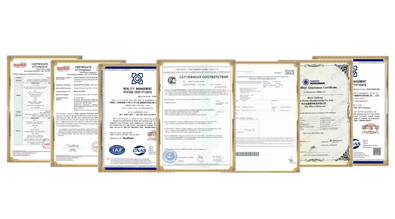
Welcome to RAYOUNG – Strong Pipes, Stronger Promise
